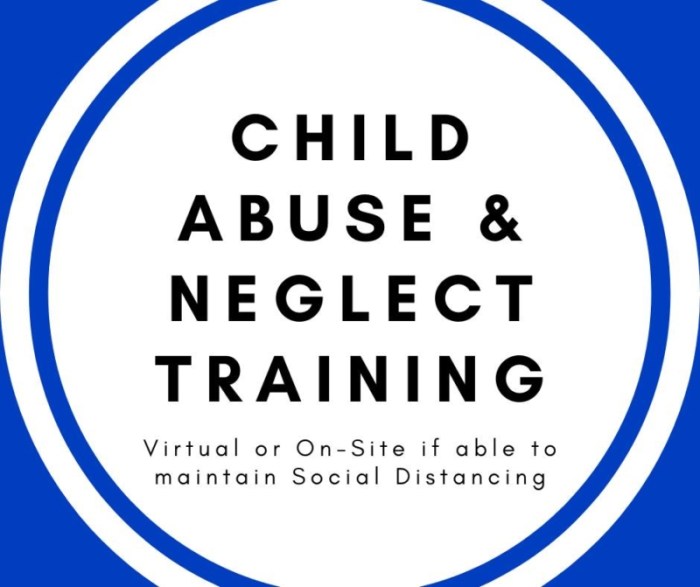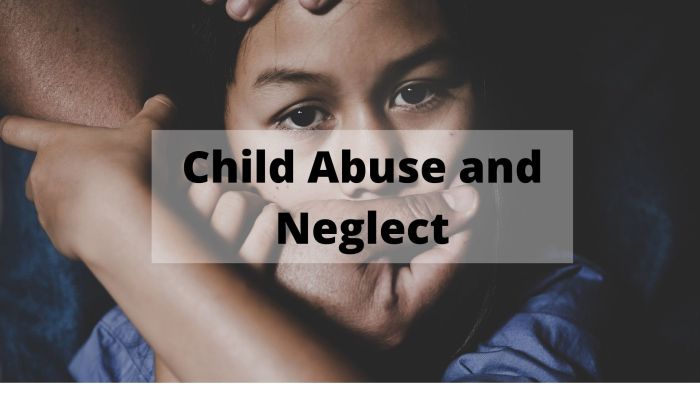Abuse neglect and exploitation training texas – Abuse, Neglect, and Exploitation (ANE) Training in Texas is a comprehensive resource designed to equip professionals with the knowledge and skills necessary to effectively prevent, identify, and respond to cases of abuse, neglect, and exploitation. This training is essential for individuals working in various fields, including healthcare, social work, education, and law enforcement, who have a legal and ethical obligation to protect vulnerable populations from harm.
This guide provides an overview of the content, target audience, delivery methods, evaluation processes, and best practices associated with ANE training in Texas. It also explores cultural considerations, ethical and legal responsibilities, and resources available for professionals seeking to enhance their knowledge and skills in this critical area.
Abuse, Neglect, and Exploitation (ANE) Training in Texas

Abuse, neglect, and exploitation (ANE) are serious issues that can have devastating consequences for individuals and families. Texas has implemented comprehensive training requirements to ensure that professionals and individuals who work with vulnerable populations are equipped to recognize, prevent, and respond to ANE.
Definition of ANE
ANE refers to any act or omission that causes harm or distress to a vulnerable person. Abuse can be physical, emotional, sexual, or financial. Neglect involves the failure to provide basic necessities, such as food, shelter, or medical care. Exploitation occurs when someone takes advantage of a vulnerable person for their own financial or personal gain.
Prevalence and Impact of ANE in Texas, Abuse neglect and exploitation training texas
ANE is a significant problem in Texas. According to the Texas Department of Family and Protective Services, over 400,000 reports of ANE were made in 2021. The impact of ANE on individuals and families can be severe, including physical injuries, emotional trauma, and financial ruin.
Legal Requirements for Reporting ANE in Texas
Texas law requires certain professionals and individuals to report suspected ANE. These include healthcare professionals, educators, law enforcement officers, and social workers. Failure to report suspected ANE can result in criminal penalties.
Target Audience for ANE Training

ANE training in Texas is mandatory for a wide range of professionals and individuals who work with vulnerable populations. This includes:
- Healthcare professionals
- Educators
- Law enforcement officers
- Social workers
- Caregivers
- Guardians
Each target group has specific responsibilities in preventing and responding to ANE. For example, healthcare professionals are responsible for identifying and reporting suspected ANE, while educators are responsible for creating a safe and supportive learning environment for children.
Content and Delivery of ANE Training

ANE training in Texas covers a wide range of topics, including:
- Definition and types of ANE
- Signs and symptoms of ANE
- Legal requirements for reporting ANE
- Best practices for preventing and responding to ANE
- Cultural considerations in ANE
- Ethical and legal considerations in ANE
ANE training is typically delivered in a variety of formats, including:
- In-person workshops
- Online courses
- Webinars
The most effective training methods use a combination of didactic instruction, case studies, role-playing, and simulations.
Evaluation and Certification of ANE Training: Abuse Neglect And Exploitation Training Texas

The effectiveness of ANE training in Texas is evaluated through a variety of methods, including:
- Participant feedback
- Pre- and post-training assessments
- Observation of training sessions
To become a certified ANE trainer in Texas, individuals must complete a state-approved training program and pass a certification exam. Certified ANE trainers are required to complete ongoing professional development to maintain their certification.
Questions and Answers
Who is required to receive ANE training in Texas?
Professionals working in healthcare, social work, education, law enforcement, and other fields that have regular contact with vulnerable populations are required to receive ANE training in Texas.
What are the core components of ANE training in Texas?
The core components of ANE training in Texas include defining ANE and its different forms, discussing the prevalence and impact of ANE in Texas, explaining the legal requirements for reporting ANE in Texas, and identifying evidence-based best practices for preventing and responding to ANE.
How can I find ANE training in Texas?
There are several organizations and agencies that offer ANE training in Texas. A list of these organizations and agencies can be found on the website of the Texas Department of Family and Protective Services.